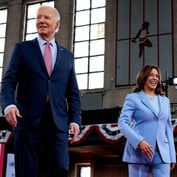There are many reasons that I admire the Million Dollar Round Table, but the primary one is because it honors selling and salesmanship. You cannot qualify for the MDRT by giving advice or counseling, unless such activity results in a sale. It measures success in tangible terms that impact upon individuals and society.
One of the things that amazed me when I first entered the insurance business was the tendency of agents to obscure the fact that they were salespeople. It was surprising to me because, in my former life as a salesman calling on auto and industrial accounts, there was considerable prestige that went with the job. Throughout the chain of design, production, distribution and marketing in my former company the salesman was considered the most vital link. Everyone understood there was not much point in producing something unless there was a means to sell it. Indeed, the salesman was the spark plug that kept the entire engine running.
There was also a great deal of pride that went with the job, for throughout my territory there were countless businesses that relied upon me and other salespeople to bring them information about products that would improve their business. Even today, after a lapse of 50 years, as I ride around the state, I still can see remnants of my handiwork as a salesman. There is a huge copper mine that has saved tens of millions of dollars because of equipment I sold the company that solved a vexing problem of production. An aircraft manufacturer used an idea (and a piece of equipment) that I brought to it to solve a problem that had stumped its engineers. A large sawmill increased production by 10% because of a $300 piece of equipment that I sold to keep pitch from building up on the saws.
Salespeople spread ideas about new ways of doing things and, in the process, keep the wheels turning in their own companies. Indeed, many analysts contend that the spark generated by America’s highly developed sales forces is the distinguishing factor separating America’s economy from those that are less developed.
With this as a background, perhaps you can understand my surprise to see insurance salespeople cloaking their activities with fancy titles like consultant, counselor, business planner and estate planner. Over time I have gotten used to that idea and understand that such nomenclature is helpful in getting certain types of appointments. That’s OK so long as a person never forgets that the roots of the profession (or practice) still lie in the ability to make a sale. The last time I checked that is still the primary function for which we are paid.








 June 11, 2006 at 04:00 PM
June 11, 2006 at 04:00 PM










